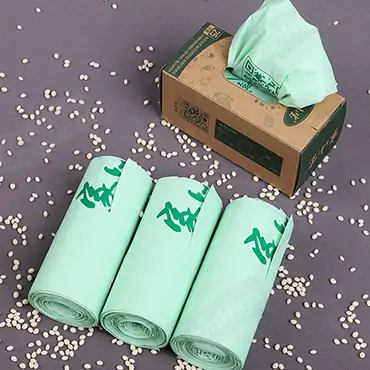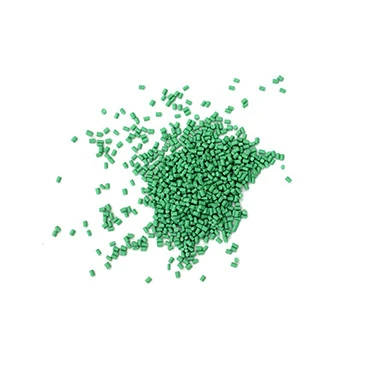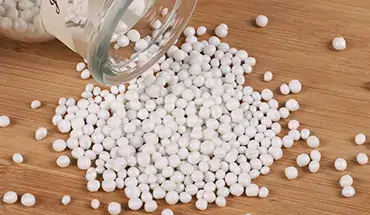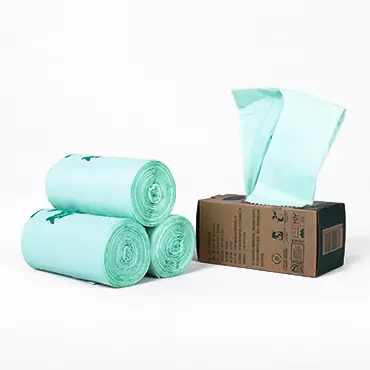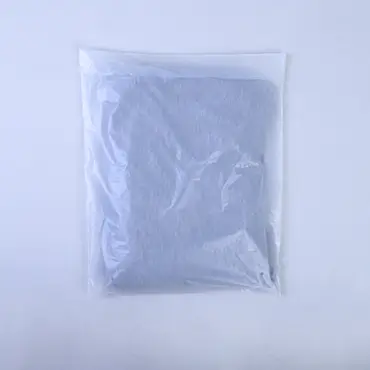Introduction
Some areas encourage residents to use compostable bags through education and publicity activities and provide corresponding guidance and support. The Australian state government, for example, has increased the use of these bio-based bags by offering free or discounted compostable bags and selling them in supermarkets. Why are compostable bags highly recommended? This post will answer some common questions about compostable bags, such as what is a compostable bag, how to dispose of discarded bags, how long compostable bags take to degrade, etc.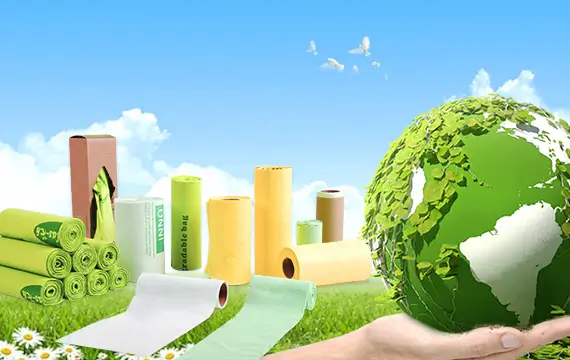
What are Compostable Bags Made Of?
Unlike regular plastic bags made from petroleum-based sources, compostable bags are made from renewable or degradable materials. Common ingredients include: polylactic acid (PLA), corn starch, and polybutylene terephthalate (PBAT).
These materials form the backbone of compostable bags, which decompose into organic matter during the composting process, leaving no hazardous substances behind, and therefore do not pollute the environment.
These eco-friendly bags are widely used for food packaging, storage, gardening, and other fields. They can not only be used to package snacks, vegetables, fruits, and other foods, but they also play an important role in collecting kitchen waste and industrial waste.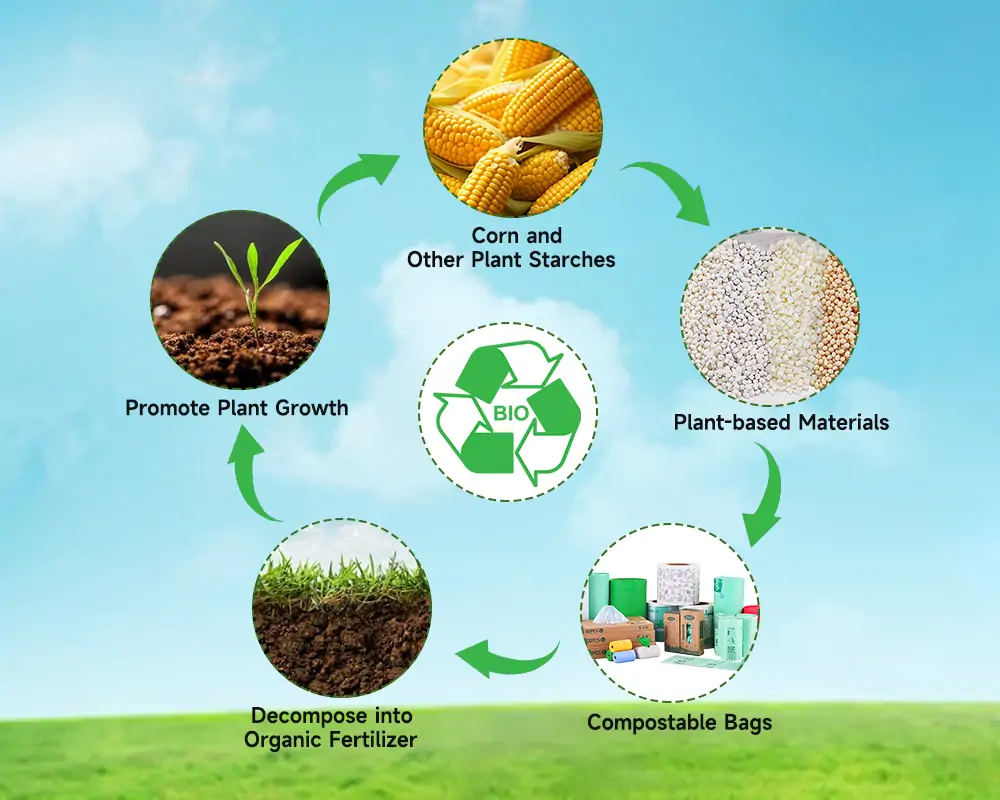
The Biodegradability Difference: Compostable vs. Biodegradable
It’s crucial to understand that “biodegradable” and “compostable” are not interchangeable terms. While both imply breakdown, “compostable” has a higher standard.
Biodegradable simply means something can be broken down by microorganisms, but the breakdown timeframe can be very long, and it may leave harmful residues.
Compostable materials are designed to break down rapidly within a composting environment (industrial or home) into natural, non-toxic substances like water, carbon dioxide, and biomass.
The biodegradable bags produced by many famous manufacturers have been certified as compostable by international authorities. For example, Compostable bags from ShinHigh have obtained certificates issued by international authoritative organizations, such as ASTM D6400(BPI), OK Compost, Home OK Compost(TÜV AUSTRIA), EN13432(DIN CERTCO), AS4736 and AS5810(ABA).
How long does it take to decompose compostable bags?
Under ideal composting conditions (i.e., microbial activity, adequate oxygen, moderate humidity, and high temperatures), compostable bags typically take 6 months to fully decompose. However, the degradation time is not absolute, as the rate of decomposition is also affected by the manufacturing process of the compostable bag itself.
Is it safe to store food in compostable bags?
Compostable zip-lock bags for food are suitable for the storage of a variety of foods including vegetables, fruits, biscuits, small cakes, etc. Made from biodegradable materials, such as PLA, corn starch, etc., these bags are non-toxic for food.
PLA is derived from plants, and lactic acid is a monomer in the human body, so PLA is very safe for food. In addition, L-lactic acid that is degraded from PLA can participate in human metabolism and has been approved by the U.S. Food and Drug Administration (FDA) for the production of medical surgical sutures, injection capsules, microspheres, and implants. It further proves that you can use these bio-based bags for food storage.
But there are some notes when storing food using compostable bags:
First, avoid high temperatures. High temperatures may speed up the decomposition rate of compostable zip-lock bags, causing them to break or leak, thus affecting food hygiene.
Secondly, keep away from moisture. If the seal of the bags is not good or the humidity of the storage environment is too high, it may lead to moisture even mold.
Thirdly, avoid direct contact with oils: Certain oils may speed up the degradation of compostable bags.
What is the shelf life of compostable bags?
The shelf life is 12 months. Storage conditions have an effect on shelf life. High temperatures may lead to accelerated aging of these bags. Therefore, it is recommended that compostable bags be stored in a cool and dry place.
High humidity may cause the material to absorb too much water, causing accelerated decomposition. Therefore, compostable bags should not be exposed to a humid environment for a long time.
Direct light can also contribute to the aging of the bag. Therefore, it is recommended to store compostable bags in a place away from light.
What to do with discarded compostable bags?
Home vs. Industrial Composting
If your bag is home-compostable, you can place it in the compost bin along with food scraps for disposal. It is simple and convenient.
Besides, if your bag is industrial compost, you can drop off compostable bags at an industrial composting facility or biodegradable material recycling center. These facilities have the capacity to process compostable plastic bags, breaking them down into water, carbon dioxide, and organic matter.
Since compostable plastic bags cannot be effectively decomposed naturally, it is not recommended to dispose of compostable bags as ordinary garbage.
How to choose compostable bags?
When purchasing compostable packaging bags, check whether the bag is made from biodegradable materials such as PLA (polylactic acid), PBAT (poly-succinic acid/butanediol ester), and corn starch. These plant-based materials can be completely decomposed into water and carbon dioxide through compost, without causing pollution to the environment.
It is recommended to select compostable bags that meet international or regional standards, such as EN 13432, ASTM D6400, AS 4736, etc. These standards ensure that these eco-friendly bags are rigorously tested and will be decomposed efficiently under composting conditions. It is better to choose bags printed with water-based ink, which is more environmentally friendly and does not release harmful substances.

